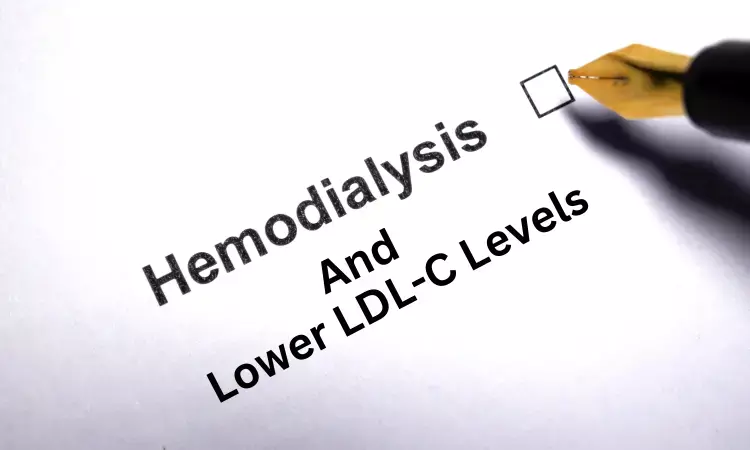- Home
- Medical news & Guidelines
- Anesthesiology
- Cardiology and CTVS
- Critical Care
- Dentistry
- Dermatology
- Diabetes and Endocrinology
- ENT
- Gastroenterology
- Medicine
- Nephrology
- Neurology
- Obstretics-Gynaecology
- Oncology
- Ophthalmology
- Orthopaedics
- Pediatrics-Neonatology
- Psychiatry
- Pulmonology
- Radiology
- Surgery
- Urology
- Laboratory Medicine
- Diet
- Nursing
- Paramedical
- Physiotherapy
- Health news
- Fact Check
- Bone Health Fact Check
- Brain Health Fact Check
- Cancer Related Fact Check
- Child Care Fact Check
- Dental and oral health fact check
- Diabetes and metabolic health fact check
- Diet and Nutrition Fact Check
- Eye and ENT Care Fact Check
- Fitness fact check
- Gut health fact check
- Heart health fact check
- Kidney health fact check
- Medical education fact check
- Men's health fact check
- Respiratory fact check
- Skin and hair care fact check
- Vaccine and Immunization fact check
- Women's health fact check
- AYUSH
- State News
- Andaman and Nicobar Islands
- Andhra Pradesh
- Arunachal Pradesh
- Assam
- Bihar
- Chandigarh
- Chattisgarh
- Dadra and Nagar Haveli
- Daman and Diu
- Delhi
- Goa
- Gujarat
- Haryana
- Himachal Pradesh
- Jammu & Kashmir
- Jharkhand
- Karnataka
- Kerala
- Ladakh
- Lakshadweep
- Madhya Pradesh
- Maharashtra
- Manipur
- Meghalaya
- Mizoram
- Nagaland
- Odisha
- Puducherry
- Punjab
- Rajasthan
- Sikkim
- Tamil Nadu
- Telangana
- Tripura
- Uttar Pradesh
- Uttrakhand
- West Bengal
- Medical Education
- Industry
Lower LDL-C levels associated with increased all-cause mortality among high-risk hemodialysis patients

Over years studies have demonstrated that reducing low-density lipoprotein cholesterol (LDL-C) can effectively decrease the risks associated with kidney related diseases, coronary artery disease, revascularization, and ischemic stroke.
In a recent study conducted in South Korea reveals that in older hemodialysis patients who had not previously received dyslipidemia treatment or elevated LDL-C levels showed no association with increased all-cause mortality. Intriguingly, lower LDL-C levels appeared to be associated with an unfavorable effect on all-cause mortality among high-risk hemodialysis patients. The findings of the study are published in BMC Nephrology.
Researchers enrolled a total of 2,732 incident hemodialysis patients aged > 70 years from a retrospective cohort of the Korean Society of Geriatric Nephrology from 2010 Jan to 2017 Dec, which included 17 academic hospitals in South Korea. Of these patients, 1,709 were statin-naïve, and 1,014 were analyzed after excluding those with missing LDL-C level data. We used multivariate Cox regression analysis to select risk factors from 20 clinical variables among the LDL-C groups.
The findings of the study are
• The mean age of the entire patient population was 78 years, with no significant differences in age between quartiles Q1 to Q4.
• However, the proportion of males decreased as the quartiles progressed towards Q4 (p < 0.001). The multivariate Cox regression analysis, which included all participants, showed that low LDL-C levels were associated with all-cause mortality.
• In the final model, compared to Q1, the hazard ratios (95% confidence interval) were 0.77 (0.620–0.972; p = 0.027), 0.85 (0.676–1.069; p = 0.166), and 0.65 (0.519–0.824; p < 0.001) for Q2, Q3, and Q4, respectively, after adjusting for covariates, such as conventional and age-specific risk factors.
• The final model demonstrated that all-cause mortality increased as LDL-C levels decreased, as confirmed by a restrictive cubic spline plot.
Researchers concluded that “In older hemodialysis patients who had not previously received dyslipidemia treatment, elevated LDL-C levels were not associated with increased all-cause mortality. Intriguingly, lower LDL-C levels appear to be associated with an unfavorable effect on all-cause mortality among high-risk hemodialysis patients.”
Reference: Song, J.H., Park, E.H., Bae, J. et al. Effect of low-density lipoprotein level and mortality in older incident statin-naïve hemodialysis patients. BMC Nephrol 24, 289 (2023). https://doi.org/10.1186/s12882-023-03337-5.
MSc. Neuroscience
Niveditha Subramani a MSc. Neuroscience (Faculty of Medicine) graduate from University of Madras, Chennai. Ambitious in Neuro research having worked in motor diseases and neuron apoptosis is interested in more of new upcoming research and their advancement in field of medicine. She has an engrossed skill towards writing and her roles at Medical dialogue include Sr. Content writer. Her news covers new discoveries and updates in field of medicine. She can be reached at editorial@medicaldialogues.in
Dr Kamal Kant Kohli-MBBS, DTCD- a chest specialist with more than 30 years of practice and a flair for writing clinical articles, Dr Kamal Kant Kohli joined Medical Dialogues as a Chief Editor of Medical News. Besides writing articles, as an editor, he proofreads and verifies all the medical content published on Medical Dialogues including those coming from journals, studies,medical conferences,guidelines etc. Email: drkohli@medicaldialogues.in. Contact no. 011-43720751


